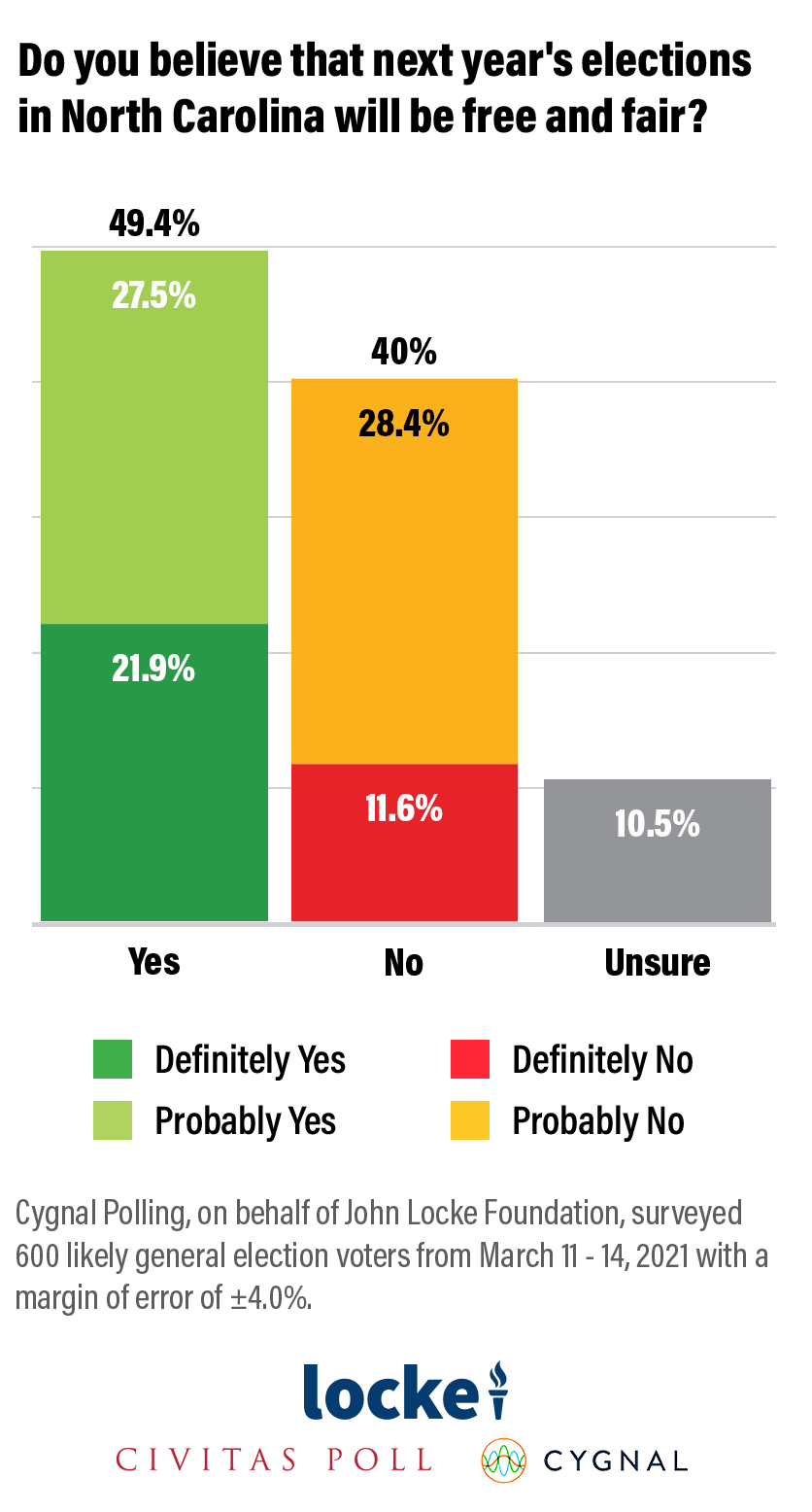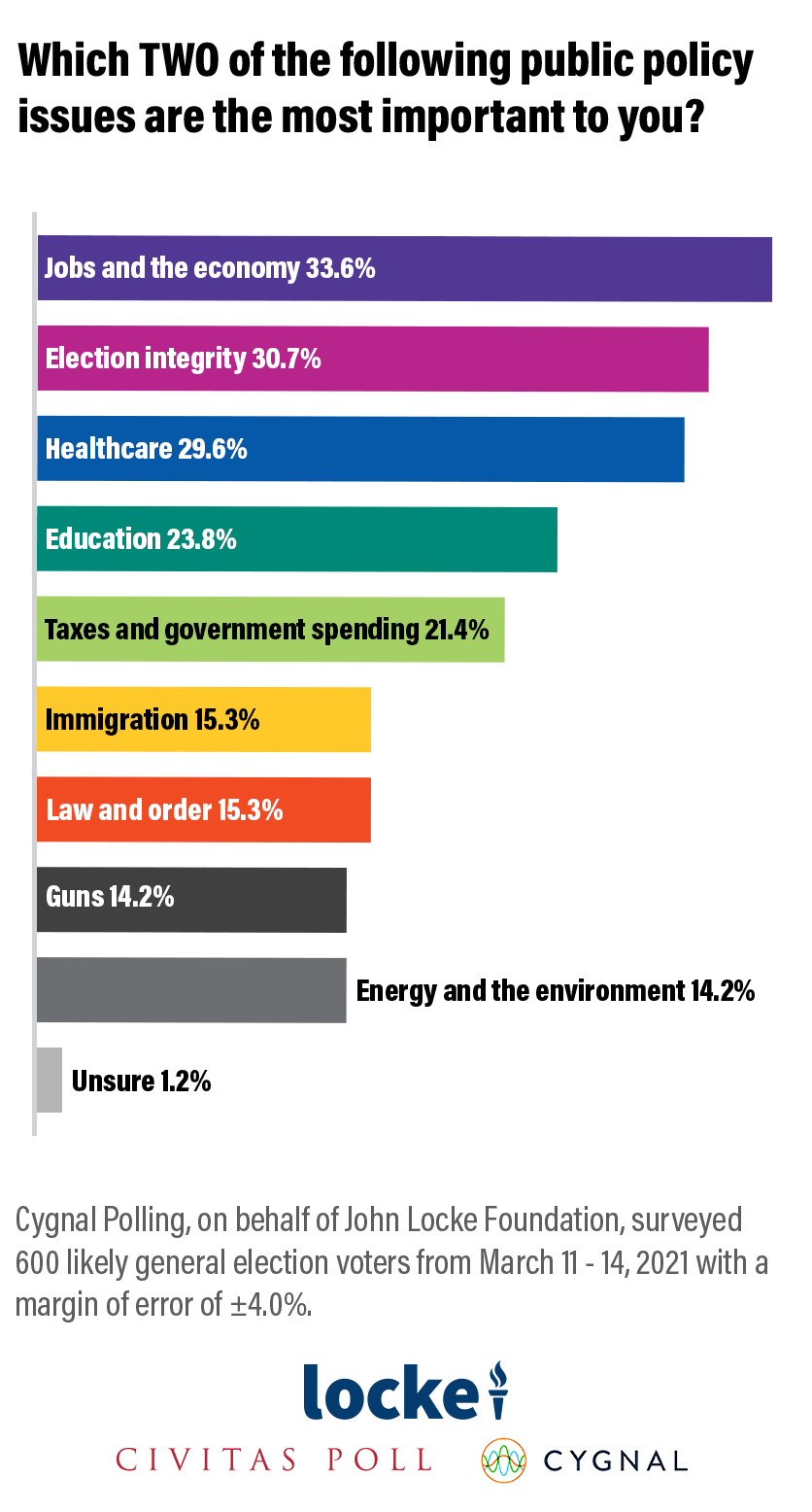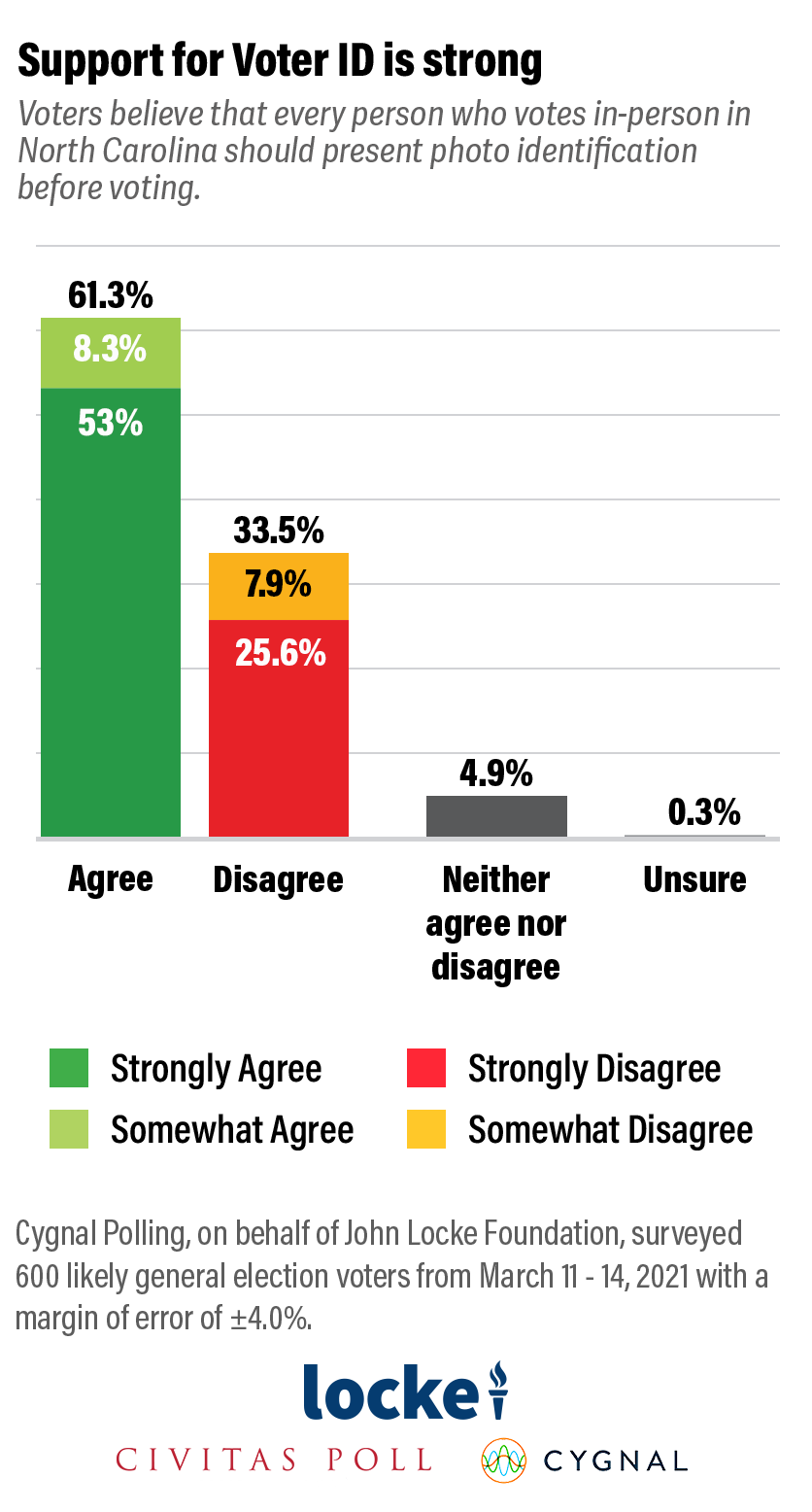March 18, 2021
RALEIGH – Fewer than half of likely North Carolina voters — 49% — believe next year’s elections in North Carolina will be free and fair, with a full 40% saying no, the 2022 elections won’t be free and fair. The remaining 11% were unsure. A new Civitas Poll released Thursday reveals the stunning level of distrust as we head into a new election cycle.
Unsurprisingly, Republicans communicated significantly more skepticism about 2022 election security than Democrats, with only 27% of registered Republicans stating their confidence in the election while 73% of Democrats expressed certainty. Unaffiliated voters were split on this question, with 45% saying they believe 2022 elections will be free and fair. Some 43% say they do not believe the elections will be free and fair.
The brewing concern is underscored in the ranking of issues deemed most important by likely voters. When asked to choose two issues that are most important to them, one in three — 31% — chose election integrity. Only jobs and the economy ranked higher, at 34%. Health care came in third at 30%, while education was chosen by 24%. Taxes and government spending ranked as most important by 21%.
“It should concern everyone that nearly one-in-three voters have election integrity as a top public policy issue,” said John Locke Foundation President Donald Bryson. “Pluralities of voters over 50, low-income voters, and non-college-educated voters named election integrity as a top issue. These numbers indicate that significant numbers of people question our electoral process’s foundations, and this issue will not go away anytime soon.”
Not surprisingly, support for requiring photo identification to vote remains strong among North Carolina’s likely voters. Six in 10 — 61% — agree that voters should present an I.D. when casting a ballot, with 53% expressing strong agreement. Thirty-four percent disagree with requiring a photo I.D. Among those who disagree, 26% do so strongly.
There is a significant shift in opinion on voter I.D. based on age, with 69% of likely voters 65 and older in favor of showing identification whereas only 45% of 18-34 year old likely voters hold this opinion. Support for voter I.D. also varies significantly by race, with 69% of whites in favor, 33% of blacks, 51% of Hispanics, and 73% of those identifying as any other race or ethnicity.
The I.D. approval rate is in line with results from the 2018 general election, when North Carolinians approved an amendment to the state constitution to require a photo I.D. to vote. The amendment passed with 55% approval. It has been challenged in the courts and has not been implemented.
Not only are voters concerned about the next election, they are concerned about the state of the country and the leadership of President Joe Biden. More than half — 52% — believe our nation is on the wrong track. Just 42% say it is heading in the right direction. The president’s job approval sits at 48%, with 49% disapproving. Strong disapproval for Mr. Biden is high — 44%. Strong approval is 10 points lower, sitting at just 34%.
Gov. Roy Cooper fares slightly better than the president in the poll. Forty-nine percent approve of the job Cooper is doing as governor and 46% disapprove. The 3-point spread shows a slight narrowing of the nearly 5-point margin by which Cooper won re-election in November 2020.
Republicans hold a slight advantage among likely North Carolina voters, according to the poll. When asked whether they would vote for the Democrat or the Republican if the election were held today, 40% said definitely the Republican for the state legislature and 42% said definitely the Republican for Congress. Democrats were chosen as the definite choice by 37% for the legislature and 40% for Congress.
Bryson continued, “North Carolina is and will continue to be the epicenter of American politics. These results indicate that the Old North State is in for another contentious and expensive election season in 2022.”
The event coincides with the 74th anniversary of North Carolina’s right-to-work law, which ensures “the right of persons to work shall not be denied or abridged on account of membership or nonmembership in any labor union or labor organization or association.”
Poll results revealed overwhelming endorsement for the right-to-work concept. Seven in 10 — 71% — support an amendment to the North Carolina constitution that says the right to live includes the right to work that cannot be denied based on whether a person is, or isn’t, a member of a labor organization. A mere 13% oppose an amendment.


